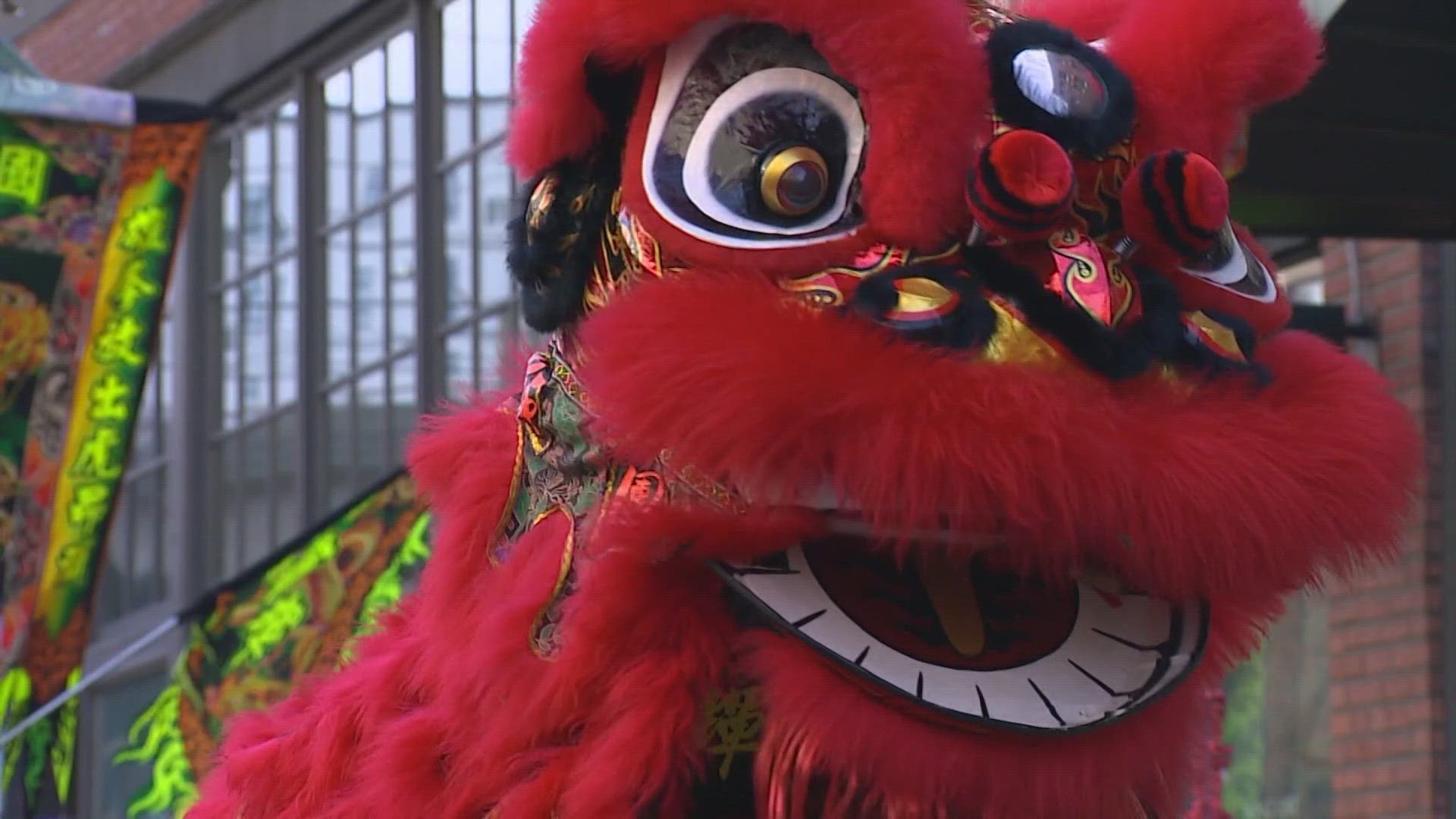SEATTLE — This weekend, you'll be seeing a whole lot of red and even a Lion Dance, in celebration of the Lunar New Year.
Jan. 1 may have come and gone, but the year is only just beginning by a different calendar. It's a mostly symbolic one, based on the monthly cycles of the moon's phases. According to that lunar calendar, the year isn't 2024, it's actually 4722.
To usher in this Lunar New Year, you'll most likely see and hear a Lion Dance. Locally, you might catch the 50-year-old Mak Fai Dragon and Lion Dance Association. Mak Fai performs year-round, but demand skyrockets during this time, with everyone wanting to kick off the new year by kicking some bad spirit booty.
The loud drumming and cymbals that accompany the lion, are all believed to ward off evil.
"You might also notice within the lion itself, it has a mirror on the forehead, it's probably one of the most significant symbolism parts," Han Eckelberg of Mak Fai said. "This actually is what scares the evil spirits away. It's believed that evil curses, evil entities are so evil; when they see their own evil they curse themselves away."
The Lunar New Year is filled with many other traditions including a lot of red decor. Red is believed to be a lucky color, so it's also the color of the envelopes elders hand out to younger people. The envelopes contain money.
People also eat a lot of foods thought to bring prosperity. For example, Chinese people like to eat oranges and dumplings because they look like gold nuggets.
"You want to have the whole fish because it's intact and it means abundance," Professor Connie So added. So is an American Ethnic Studies professor at the University of Washington. "You have to have cauliflower, because it's fa choy, and it means a lot of prosperity."
Facts about the Lunar New Year
It's based on the moon's phases and not the traditional calendar so it falls on a different day every year — usually sometime between the end of January and middle of February. This year, the holiday falls on Saturday, Feb. 10.
Many Asian countries celebrate it, and some traditions are shared, while some are not.
For example, Koreans don't seek out oranges. Instead, they make it a point to eat rice cake soup or ddeokguk. It's thought you don't age another year until you eat it.
There are even different names for the holiday as well. In Korea it's called Seoullal (설날), in Vietnam, it's called Tết. In China, it's called Chinese New Year.
"I feel pride because it has a lot of relevance to my cultural identity," Eckelberg added when asked how he felt about participating in traditions. "I'm Chinese and half German and I want to represent my Chinese side."
Like many holidays, Lunar New Year's core principle revolves around family and togetherness.
"It's more of the purpose, the effort, the sincerity in what you're trying to do," So said. "I think the same way about other people participating in holidays. A lot of people who participate in Christmas or Easter are not necessarily Christians. But I would think that everyone likes to think about a day people made sacrifices and be with family."
So if you're out and about this Lunar New Year, and happen to run into a Lion Dance, or pop by an Asian restaurant, a moment of appreciation can be all it takes to usher in the new year, whether it's 2024 or 4722.
"We're not just performing, again this is our lifestyle we live and breathe this every single day, so people can capture a small grasp of that then we're doing our job," Eckelberg said.
"I just like the fact that I'm doing things, maybe not the way they're doing things 4722 years ago but we're still doing things," So added. "And I'm together with other people who are following the lunar calendar that was important to a lot my ancestors."
2024 happens to be the year of the Dragon. This is seen as extra special because the dragon, being the only mythical creature in the pantheon of Zodiac animals, is believed to symbolize power, nobility, honor and success.
In fact, it's considered to be so lucky that according to the Bureau of Economic Research, children born in the year of the dragon achieve higher educational goals.

